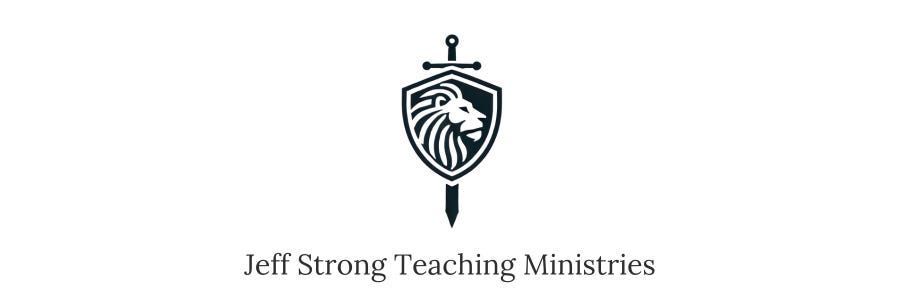“The eye is the lamp of the body. If your eyes are healthy, your whole body will be full of light.”
— Jesus (Matthew 6:22)
I’ve spent the last few years noticing a quiet but consistent pattern in my own life. When I’m tired, stressed, or bored, I reach for my phone. Not to be formed. Not to learn. Just to scroll.
And when I scroll without purpose, I often find myself caught in a loop of the familiar: quick takes, cheap laughs, anxious headlines, spiritual platitudes without weight. The algorithms, I’ve realized, are more than just digital tools. They reflect back the habits I’ve already built. They serve me what I’ve trained them to believe I want.
So I’ve been learning—slowly and often clumsily—to retrain my digital appetite. To feed on what is true, good, and beautiful. To fight against the drift toward noise, and reorient my attention toward Christ and his kingdom priorities for my life.
Because the feed is not just a distraction. It is a form of discipleship and formation.
What Shapes Our Attention Shapes Our Soul
Spiritual formation doesn’t begin and end with Scripture reading or Sunday worship. It also happens through repetition; what we look at, listen to, and linger over. And in this era of endless content, our digital habits are forming us more than we often admit.
Paul tells the Colossians to “set your minds on things above.” That’s not a call to escape the world or disconnect from reality. It’s a call to focus, to lift our gaze to the eternal and truly important. But when our feed is saturated with triviality, outrage, vanity, or the constant lure of curated bodies and sexualized content, our inner world begins to conform to those patterns. It becomes drawn toward lust, fueled by comparison, addicted to attention, and numbed by escapism that pulls us away from embodied reality, each other, and from God.
Timothy Keller was fond of saying, “We become what we worship.” In other words, we are shaped by whatever receives our best and most consistent attention. The transformation may not be immediate, but it does happens over time.
The Feed Is Not Neutral, and It Is Not “For” You
Much of what we encounter online is engineered to cultivate our engagement, not our well-being. Social media platforms are not designed with your growth, peace, or wisdom in mind. They prioritize whatever keeps you scrolling, even if it leaves you more anxious, reactive, or distracted.
That means our feeds often amplify what is sensational, divisive, or emotionally charged rather than what is thoughtful, grounded, or true. And that is not just a technological concern. It is a spiritual one.
Even well-meaning Christian content can drift toward spectacle. I’ve unfollowed a number of Christian accounts and influencers recently because their posts seemed more intent on generating controversy than cultivating depth. They leaned into performance and superficial distraction rather than content rooted in what is true, beautiful, and good.
Cultivating a Curious and Discerning Mind
Let me be clear: I’m not anti-digital. I enjoy technology, and I’ve found fun, meaningful, and insightful content online. I’ve learned from voices I never would have encountered otherwise. In many ways, both my personal and professional growth have accelerated thanks to the wealth of content that has become accessible over the past decade.
But I’ve also learned that curiosity needs direction and significant curation. Without it, I end up clicking through whatever is most emotionally charged, most addictive, or most convenient.
Sanctified curiosity asks different questions. Not only “Is this interesting?” but also, “Is this forming me in love, wisdom, and joy?” Paul writes, “Everything is permissible, but not everything is beneficial.” That includes the way we use our screens.
Practices That Help
Here are a few habits I’ve found helpful, not as rigid rules, but as ways to keep space open for God’s voice:
1. Audit the Feed
Take time to reflect. What shows up most often in your apps? What emotions surface when you engage with it?
2. Build in Digital Sabbath
Create space to disconnect. Choose regular times to be present to people, silence, or Scripture without the background noise of the web.
3. Begin and End with Stillness
Avoid starting or ending your day with your phone. Let prayer, reflection, or Scripture frame your daily rhythms.
4. Curate with Intentional
Seek out voices, stories, and perspectives that stir worship, compassion, joy, enthusiasm for life, and wisdom. Train your digital habits toward what is truly healthy and worthwhile.
5. Reconnect With Embodied Practices
Balance screen time with activities that re-root you in the real world: walking, journaling, shared meals, unhurried conversation.
These rhythms are invitations to live attentively, not reactively. In stepping back from the frenzy and noise, we begin to honour and strengthen our embodied connection to creation, to ourselves, to each other, and to God. This is about aligning heart, soul, mind, and strength with the pace and presence of the Spirit, so we can live rooted and responsive in a world that constantly pulls us in other directions.
When Stepping Away Is the Right Step Forward
For some, this reflection may lead to a deeper conclusion: maybe less is better. Maybe the digital world isn’t where you’re called to spend much time. That’s not failure. That’s discernment.
Digital minimalism, or even digital fasting, can be a faithful response. Not everyone needs to stay in the current, especially if it is pulling them away from the things that matter most. Stepping away from the constant stream of digital input may be exactly what your soul needs to hear God again.
There is no single path. But there is a shared calling: to love God with heart, soul, mind, and strength. And that includes how we use our attention.
Fixing Our Gaze on Christ
At the center of Christian life is not content, but Christ. The Word made flesh. Not another voice in the feed, but the voice that summons life from death and calls us by name.
He is not merely a topic of study or source of encouragement. He is the lens through which everything else becomes clear.
To fix our gaze on Him is not to withdraw from the world but to move through it with purpose. With clarity. With joy.
A Final Thought
This is something I’m still learning. I don’t always get it right. I’m still tempted by the quick dopamine hits offered by novelty and noise. But I want to grow. I want my attention to reflect my allegiance. I want the Spirit to have space to shape me, not just in church, but in the quiet moments between.
So maybe we begin there—by noticing. By confessing. By choosing to look again toward the One who invites us into a kingdom-focused life, not mindless, worldly distraction.
And over time, may even our feed tell the story of a life hidden in Him.






